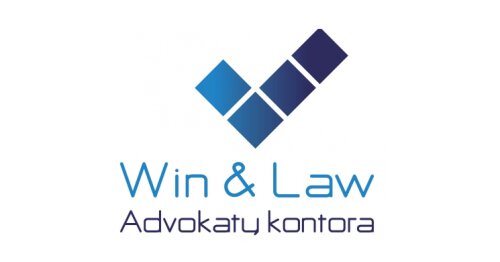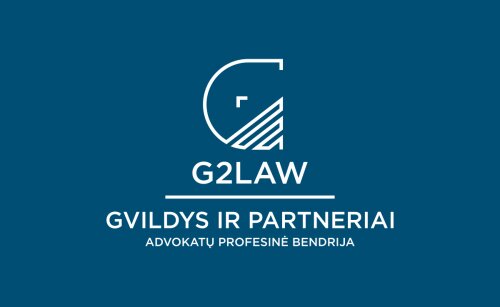Best Public-Private Partnerships (PPP) Lawyers in Klaipėda
Share your needs with us, get contacted by law firms.
Free. Takes 2 min.
List of the best lawyers in Klaipėda, Republic of Lithuania
About Public-Private Partnerships (PPP) Law in Klaipėda, Republic of Lithuania
Public-Private Partnerships (PPP) are collaborative agreements between public authorities and private sector entities to fund, construct, operate, and maintain infrastructure or deliver public services. In Klaipėda, as in the rest of Lithuania, PPPs are governed by both national legislation and EU regulations aimed at encouraging investment, sharing risks, and ensuring transparency. These arrangements are widely used in sectors like transportation, healthcare, education, and urban development, where public needs meet significant capital or expertise requirements best met through cooperation with private partners. The legislative foundation for PPPs in Lithuania is designed to promote economic efficiency while safeguarding the interests of both the public sector and private investors.
Why You May Need a Lawyer
Engaging in a PPP project is a complex undertaking that often involves significant legal and financial commitments for both public entities and private companies. Common situations where legal assistance is essential include:
- Drafting, reviewing, or negotiating PPP contracts
- Understanding and complying with procurement and tendering procedures
- Assisting with risk allocation and financial structuring
- Ensuring compliance with local, national, and EU regulations
- Resolving disputes arising from contract performance or changes in project scope
- Navigating requirements related to permits, land use, or environmental regulations
- Advising on public funding structures and guarantees
- Advising foreign investors on Lithuanian market entry and partnership protocols
A lawyer with experience in PPP projects can provide indispensable guidance to prevent costly mistakes, reduce project delays, and protect your rights throughout all phases of the partnership.
Local Laws Overview
PPP arrangements in Klaipėda and across Lithuania are principally regulated by the Law on Concessions, the Law on Public Procurement, and specific PPP legislation adopted by the Seimas (Parliament) of the Republic of Lithuania. Key aspects of this legal framework include:
- PPP Definition: Lithuanian law defines PPP as a contract-based cooperation between a public and a private entity for the provision of a public service or infrastructure.
- Procurement Procedures: Strict rules govern how public projects are announced, bids collected, and partners selected to ensure transparency and fair competition.
- Risk Sharing: A central feature of PPP contracts is the balanced allocation of risks (construction, demand, operational) between the public and private partners.
- Contract Duration: PPP agreements typically last from five to thirty years, depending on the project and sector.
- Approval and Oversight: Local authorities in Klaipėda must often obtain consent from the Ministry of Finance or other relevant ministries for significant PPP projects.
- Dispute Resolution: Contracts usually specify jurisdiction and dispute resolution mechanisms, often prioritizing arbitration or mediation before resorting to court proceedings.
- EU Compliance: All PPP projects must comply with applicable European Union directives concerning public procurement, state aid, and competition law.
Frequently Asked Questions
What counts as a Public-Private Partnership in Klaipėda?
A PPP in Klaipėda is any legally binding cooperation where a public authority and a private entity jointly deliver public infrastructure or services, sharing both responsibilities and risks.
Who can initiate a PPP project?
Both public authorities (such as the municipality of Klaipėda) and private companies or consortiums can initiate PPP discussions, but the formal process must be led by a public body as project owner.
Are local or foreign companies eligible to participate in PPPs?
Yes, both local Lithuanian and foreign companies can participate, provided they meet the eligibility criteria set out in the project tender documentation.
How are PPP contracts awarded?
Contracts are awarded through transparent public procurement or concession procedures, usually involving a competitive tender process in line with national and EU law.
What are the main risks in PPP agreements?
Main risks include construction delays, unforeseen operational costs, regulatory changes, demand shortfalls, and disputes over contract terms.
How are disputes in PPPs resolved?
Dispute resolution mechanisms are set in the PPP contract and can involve negotiation, mediation, arbitration, or litigation in court as a last resort.
What is the typical duration of a PPP agreement?
PPP agreements typically last from five to thirty years, depending on the type, size, and complexity of the project.
Do PPP projects require governmental approval?
Yes, projects often require approval from local government authorities, and in some cases, from national ministries, especially for large-scale or strategic initiatives.
What funding options are available for PPP projects?
Funding may come from a mix of private investment, public resources, EU structural funds, and sometimes loans or guarantees from international financial institutions.
Can an existing contract be changed during the project?
Contract amendments are possible, but material changes are restricted and must comply with procurement and PPP laws to prevent unfair advantages or decreased transparency.
Additional Resources
If you need more information or official guidance, consider reaching out to:
- Ministry of Finance of the Republic of Lithuania - the main authority responsible for PPP policies
- Klaipėda City Municipality - for information about ongoing or planned local PPP projects
- Public Procurement Office of the Republic of Lithuania - guidance and regulations on tender procedures
- Association of Lithuanian PPP Projects - a professional network and resource center
- European PPP Expertise Centre (EPEC) - for best practices and support at the EU level
Next Steps
If you are interested in participating in or developing a PPP project in Klaipėda, it is crucial to begin with a clear understanding of your objectives and legal requirements. Here is how you should proceed:
- Research planned or current PPP opportunities in Klaipėda
- Consult with a legal expert specializing in PPPs and public procurement
- Prepare necessary documentation and ensure compliance with all regulatory criteria
- Attend informational sessions or meet with local authorities to seek clarification on procedures
- Engage a qualified legal advisor to review contracts, procurement documents, and compliance checkpoints before committing resources
Seeking early legal advice will help safeguard your interests, ensure compliance with all relevant laws, and set your PPP project on a solid foundation for long-term success.
Lawzana helps you find the best lawyers and law firms in Klaipėda through a curated and pre-screened list of qualified legal professionals. Our platform offers rankings and detailed profiles of attorneys and law firms, allowing you to compare based on practice areas, including Public-Private Partnerships (PPP), experience, and client feedback.
Each profile includes a description of the firm's areas of practice, client reviews, team members and partners, year of establishment, spoken languages, office locations, contact information, social media presence, and any published articles or resources. Most firms on our platform speak English and are experienced in both local and international legal matters.
Get a quote from top-rated law firms in Klaipėda, Republic of Lithuania — quickly, securely, and without unnecessary hassle.
Disclaimer:
The information provided on this page is for general informational purposes only and does not constitute legal advice. While we strive to ensure the accuracy and relevance of the content, legal information may change over time, and interpretations of the law can vary. You should always consult with a qualified legal professional for advice specific to your situation.
We disclaim all liability for actions taken or not taken based on the content of this page. If you believe any information is incorrect or outdated, please contact us, and we will review and update it where appropriate.













